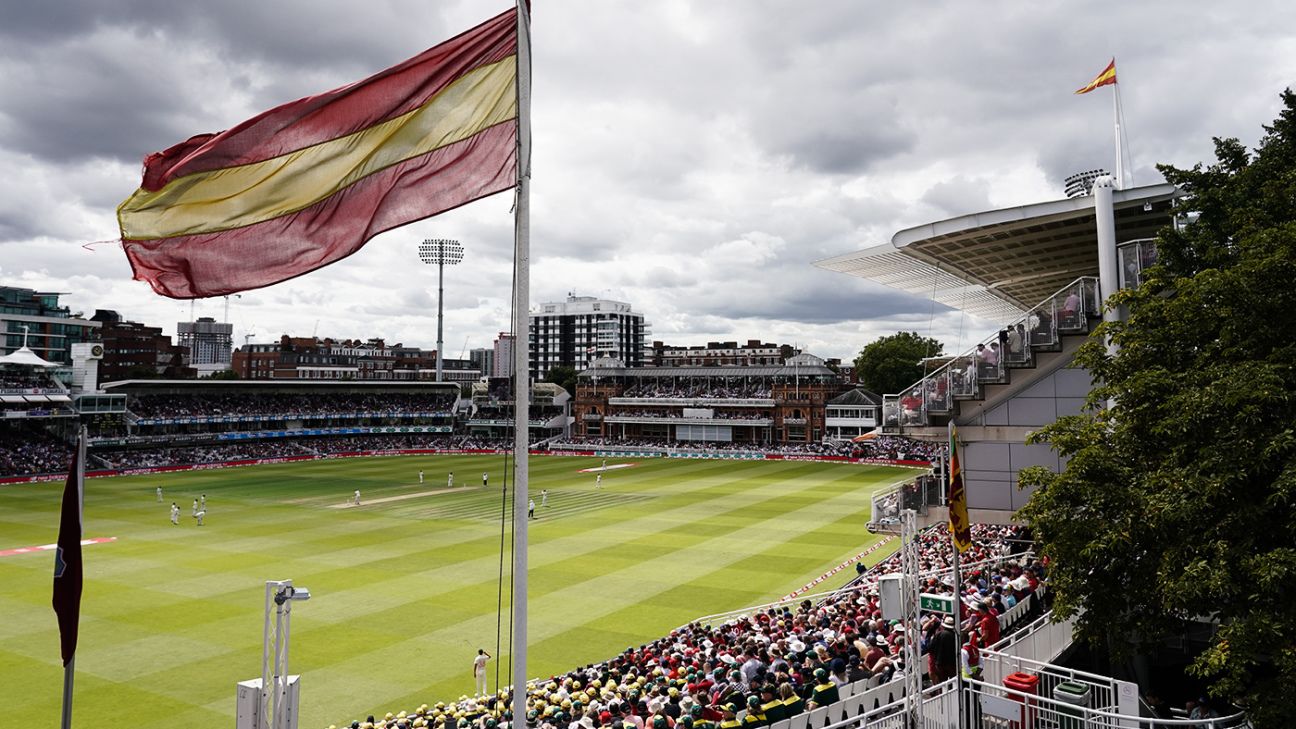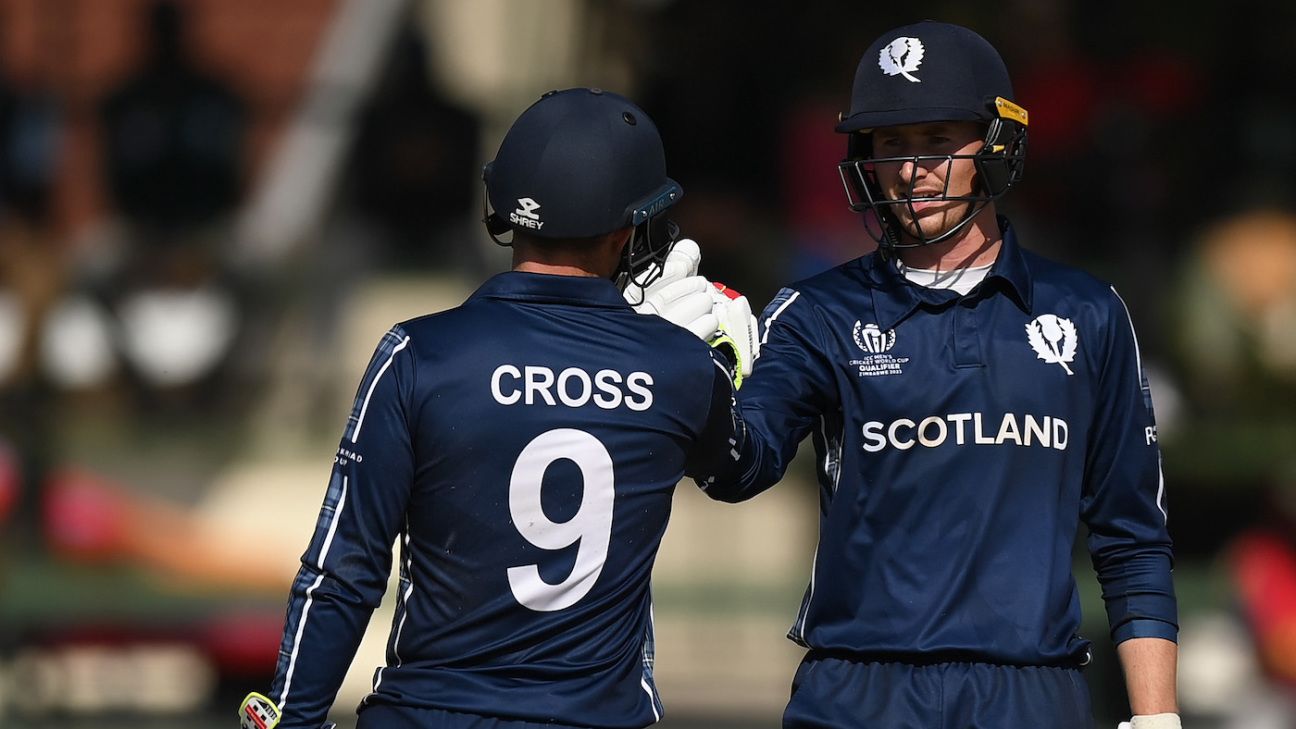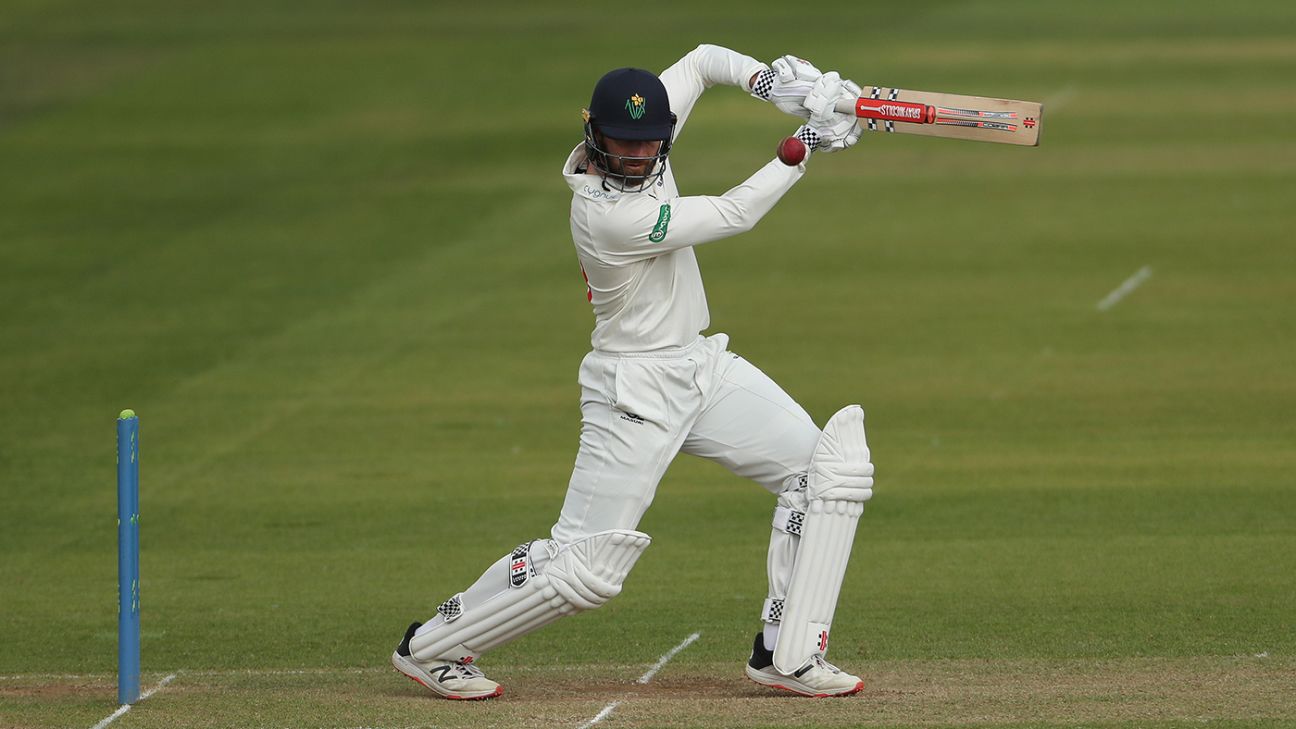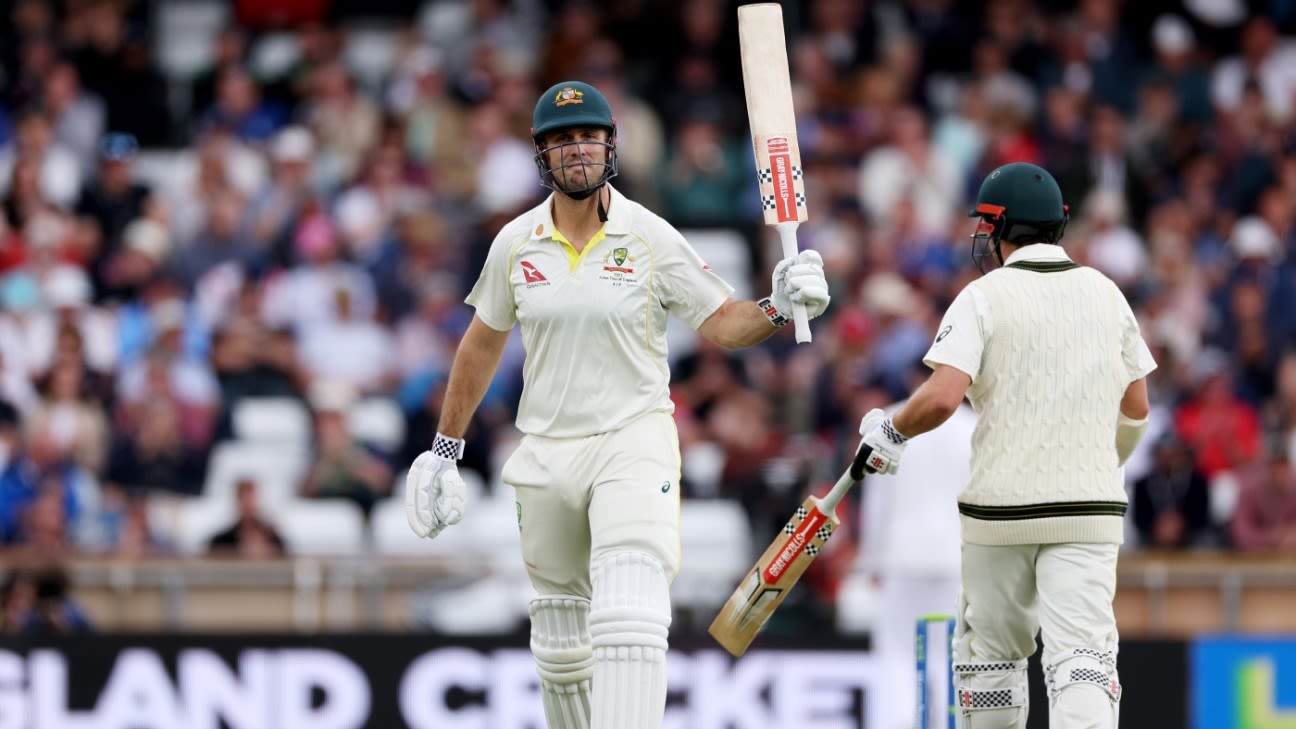
Language issues. That a lot has grow to be more and more obvious with each new revelation in England’s ongoing racism reckoning. Whether or not the arrestingly terrible headline slurs that Azeem Rafiq outlined throughout his emotional testimony on the DCMS hearings, or extra insidious on a regular basis micro-aggressions – comparable to Cheteshwar Pujara protesting on this web site that he did not very like his nickname at Yorkshire of “Steve” – there can’t be many individuals inside cricket who’ve watched this story unfold throughout the previous three years, and never had motive to mirror on behaviours that will merely have gone unchallenged in a earlier age.
For many who strategy the ICEC report with an open thoughts, there is a fascination to be derived from a historic narrative that delves deep into cricket’s colonial historical past, and attracts collectively a variety of disparate threads right into a single, compellingly argued level: {that a} sport that was born in pre-industrial England however exported across the globe as a soft-power byword for imperial Britain’s underlying sense of truthful play has had deep-seated prejudice baked into its soul from inception.
And for these much less prepared to present such findings the identical slack, they could discover it reads quite like a wonderfully argued remark piece in your least-favourite newspaper. You possibly can attempt to disagree with its at-times forensic findings if you happen to actually should. However do you have to dare to take action, you’d higher come armed with info to again up your opinions, as a result of it is a work that is able to take you again to highschool.
Take the report’s skewering, in a bit known as “Earlier than we start” (which in itself is a disarmingly candid flip of phrase, like Columbo turning fatefully to utter “simply one other factor”), of these respondents to the fee’s on-line survey whose views have been a lot as you would possibly look forward to finding in lots of a web site feedback part: “Do not bow to the scourge of wokeness,” wrote one such contributor. “99.9% of individuals could not care much less [about race, class, gender],” declared one other.
“So we start this report with a request,” the ICEC narrative continues, “that individuals who maintain views like these hold an open thoughts and settle for the fact that 1000’s of people that participated on this overview, and lots of extra who did not, have skilled discrimination in cricket …
“Some folks could roll their eyes on the perceived ‘wokeness’ of this work. Nevertheless, as a lot because the phrase could have been weaponised in recent times, taking over a pejorative which means, we take into account – and it’s typically outlined as such – that being ‘woke’ or doing ‘woke work’ merely means being alive to injustice.”
To that finish, the ECB is available in for some justifiable early reward throughout the report’s preamble for “proactively initiating this course of” and being “optimistic and courageous” sufficient to open itself as much as such forensic scrutiny. For if, as the following narrative quite implies, cricket is a microcosm of the English institution, then perhaps the method of “holding up a mirror” to the institution’s favorite sport might but be a method for comparable significant change to take root in society at massive.
“The issues we determine aren’t, sadly, distinctive to cricket,” the report continues. “In lots of cases they’re indicative of equally deeply rooted societal issues … change doesn’t occur with out understanding the problems that should be addressed and so we imagine the ECB is worthy of reward for enterprise this train.”
“When seen by a post-colonial lens, it’s simpler to see why race and sophistication specifically are such basic obstacles to cricket’s quest for better inclusivity”
By that stage, after all, the “who” and “what” had lengthy since been essentially the most titillating supply of media curiosity – what was it that Michael Vaughan mentioned to his workforce containing 4 Asian gamers on the outfield at Trent Bridge, and who throughout the Yorkshire dressing-room really believes the phrase “P**i” was acceptable banter? Regardless of how typically it was claimed all through this part of the method that cricket’s try to heal itself can be targeted extra on establishments than people, the collateral harm of the previous three years – from Vaughan, to Yorkshire’s back-room employees, to David Lloyd, and self-evidently Rafiq himself – advised a distinct, extra divisive story.
However for the sake of a real development of the reason for fairness, the ICEC report has rightly recognised that “how” and “why” are the one questions that matter now, with a pivot away from personality-based explanations, and a deep-dive into the longstanding root causes that any cricket fan with a conscience would be capable of recognise as complicit.
Actually, when seen by a post-colonial lens, it’s simpler to see why race and sophistication specifically are such basic obstacles to cricket’s quest for better inclusivity (and why the ladies’s recreation, to cite the report’s brutal evaluation is “steadily demeaned, stereotyped and handled as second-class”).
It was some 4 a long time in the past that the Conservative politician Norman Tebbit prompt that immigrants who help their native nations quite than England throughout Check matches aren’t considerably built-in into the UK. And but, that delineation nonetheless endures – and in lots of instances is joyfully celebrated by the communities involved, even a number of generations later – maybe most notably in current weeks when Bangladesh took on Eire in Chelmsford again in Could, and the huge British-Bangladeshi communities of East London flocked to the three-match collection, to rally round their cultural heritage.
That is to not say that the normal rivalries that kind the model of cricket that also pays a lot of the payments and attracts a lot of the crowds on this nation are the basis explanation for the game’s ills. However given the oft-quoted figures concerning the reputation of cricket amongst ethnically numerous communities, in comparison with the conversion of that curiosity to the skilled recreation (30-35% to eight.1% in 2021), the ICEC is inside its rights to deduce {that a} diploma of “them and us” has been hard-coded into the game’s pathways.
The logic of the drop is sound sufficient in isolation. The contents of this report are too necessary to be snuck into the information cycle on a day when the media’s consideration might conceivably be drawn elsewhere. This fashion, the rug is pulled from below the sport earlier than the report will be swept below it. And, for the following 5 days, each time the cameras reduce to these egg-and-bacon sorts within the pavilion, or to the punters within the stands with their stereotypically white, male and prosperous profiles, it might be astonishing if there was not a minimum of an incremental uptick within the variety of folks checking their privilege alongside the best way.
It does, nonetheless, really feel like a punitive piece of timing, if the general intention of the ICEC report is to unify for the betterment of the sport as a complete, and maybe one which’s been designed with Lord’s as the precise goal, quite than an England workforce that has been visibly keen in recent times to fulfil its social obligations – not least, after all, of their at-times evangelical willpower to entertain and encourage a brand new era.
For if there’s a villain of the piece, it’s Marylebone Cricket Membership – the embodiment of the traditional order, the basis of all the game’s inequity (and, to evaluate by the language that the report makes use of, its iniquity too).
Whether or not it is the damning assertion that the “the ‘house of cricket’ continues to be a house principally for males”, or that the MCC’s ban on musical devices has been disproportionately offputting to the Caribbean group, or the outstanding incontrovertible fact that the Eton-Harrow match at Lord’s – ostensibly an anachronism with no relevance past the slender social confines to which it appeals – is deemed to be one of many 44 most pressing points that the game wants to handle.
In the meanwhile, a quick assertion from Man Lavender, MCC’s chief govt, is the sum whole of the membership’s response, with its dedication to reflection, and a concentrate on ensuring that Lord’s is “a spot the place everybody feels welcome”. The language you would possibly count on from an embattled organisation at such a important juncture, in different phrases.
However it’s the language of the ICEC that gives essentially the most startling critique, throughout the broader context of its findings. “We respect and worth most of the traditions of cricket typically, and Lord’s specifically, however not all,” the fee writes. “Some not have a spot in modern Britain.”
And as a consequence, for the following 5 days, modern Britain shall be watching the goings-on in NW8 with maybe a contact extra scrutiny than the grand previous membership is used to feeling. As a proxy for cricket’s wider issues, which the ICEC is now in search of to tug into the sunshine, it is clearly nearly as good a spot to start out as any. And by way of underlining the difficulty’s existential significance, to unveil it proper now could be a reminder too that the game can not get away with standing on ceremony any longer.
Andrew Miller is UK editor of ESPNcricinfo. @miller_cricket
Source link
USASports – #English #institution #pay attention #study #wake #ICEC #report
Printed : 2023-06-27 12:52:07




